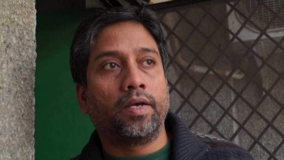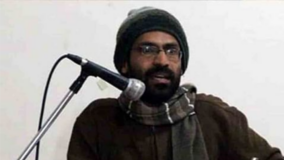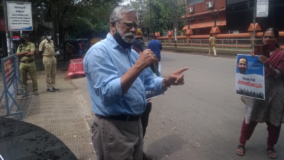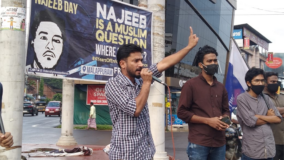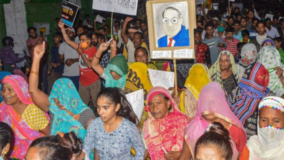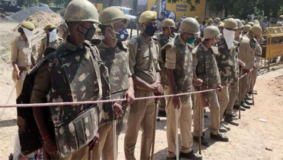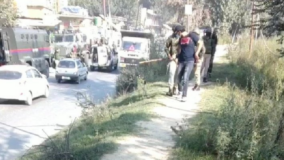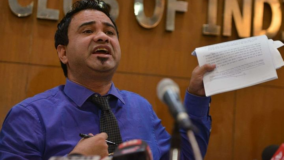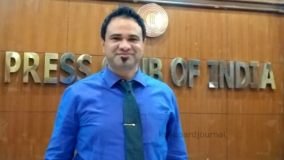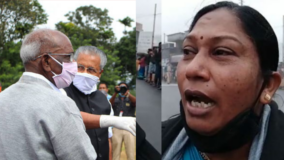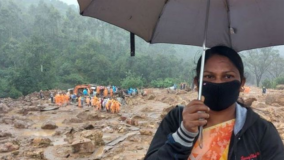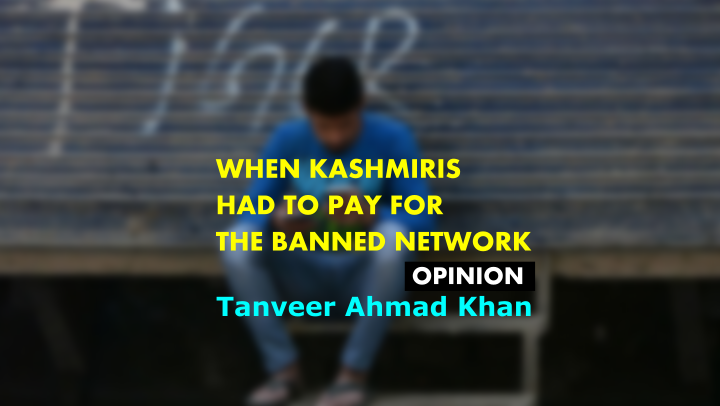
The Right to Mobile Networks: On Capitalistic Policy of Government in Kashmir
Mobile Phones constitute an important element of human life. It has expanded the sphere of communication. People have reshaped the forms of networks and this network, in turn, reshaped their daily activities. The evolution in networks from 2G to 4 G has made life of the people happier and prosperous. The transition of networks determines the nature of the society and of the people we have. It influences the forms of interaction among humans. Our right to reshape mobile networks and to build such networks is affected by the social, economic and political considerations. The political considerations in Kashmir are always uncertain and unstable. These considerations become much more influential under the paradigms of advanced capitalism via conflict. Conflict has simultaneously hijacked as well as extended the pace of capitalism. The term capitalism is restricted to the telecom companies operating in different parts of Jammu and Kashmir. Telecom companies especially JIO has largest number of subscribers is debated throughout the article. In Kashmir JIO is the only telecom company that has SIM cards and Mobile Phones under its brand name. Also, it is only company that provides 4 G network mobile phones at cheaper rates. Thereby it has highest market share as against other companies.
In an advanced capitalist economic, successful multinational corporations and business firms create huge surplus. In simple words, such firms invest assets in productive mode. Let me put here the case of JIO owned by Mukesh Ambani; acquainted profit maximization through dumping methods. This marketization was further enhanced by free monopolistic competition. After extending the market share this company started charging high rates thus is capable to generate surplus without the physical involvement of the labor. There is a change in the mode of production and the forms of capital. There is a shift in the nature of oppression against Kashmiris. This is the Indian oppression that has devastated human as well as physical capital. At all levels exploitation in one or other form is the destiny of Kashmiris. After sieged oppression they are being exploited on basis of being JIO subscriber. There is commodification of subscribers. This exploitation of customers leads to the accumulation of money which they have. They reinvest same money for the business activities to remain profitable keep its market share and grow, which is crucial under capitalism. Peter Bloom noted when combining the entire surplus around the world, we are talking about lots and lots of money- so much that there isn’t enough capacity to absorb it through reinvestment. And if capitalism hates anything, it’s stagnation. The stagnation that continued for 72 days benefited only the companies not its customers. Customers were charged as the telecom companies wanted.
There has been a long stagnation of capital flows of MNCs in Kashmir. Almost for three months, all networks were suspended in Kashmir after the termination of Article 35A and 370 when Amit Shah declared Jammu and Kashmir as a Union Territory. A form of social closure was developed in which the communication blackout was the first initiate taken by the authorities. Since then a complete ‘social closure’ continued for three months. Murphy defines social closure as a “process of subordination whereby one group monopolizes advantages by closing off opportunities to another group of outsiders beneath it which it defines as inferior and ineligible.” This social closure of Kashmiri was furthered by Indian security forces followed by humiliation of the natives. Silver reported that social “closure” is achieved when institutions and cultural distinctions not only create boundaries that keep others out against their will but also used to perpetuate inequality. Inequality grew between state actors and civilians whose life was characterized by isolation and destitute as they are deprived from access to the right to mobile networks. Non-users, especially Kashmiris citizens witnessed mobile deprivation for more than two months. It has severe consequences upon social, economic, cultural and development. Kashmir is the hub of MNCs, particularly of JIO, with large chunk of subscribers.
In Kashmir, a large proposition of the population is using JIO, both prepaid and postpaid. This was launched in Kashmir on 27 December 2015 with millions of customers. The company has commercially declined the strength of other companies. Thus, has maintained monopoly. This monopoly gets strengthened when supported by the government; develops a new form of group monopoly, which generates inequality and severe economic exploitation. Under such circumstances social order becomes coercive which serves the interests of capitalistic class. Mobile networks they developed for enriching sociability; however are used for sustaining the stability of the capitalism. Government is encouraging the business portfolio of JIO by doing favors to this company.
After the long tenure of mobile network suspension, Indian government on 14th October decided to restore all post-paid connections. It was at 12A.M I got a first call from my cousin brother Mudasir. Our talk on phone always beings with greetings; however, on that particular day he said, “brother, my pack of 399 has expired without use. Please check my bill and recharge me”. Another call from my friend Arsheed who told me that my jio number is showing a bill of Rs. 100 pending. Followed by another from my teacher Dr. Fayaz who mentioned that he is not willing to make any recharge unless the bill is not cancelled. Why should I Pay when I have not used my phone for three months he dropped his call in very disturbed mode. They are looting us in the name of paying bills. Meanwhile I started recharging, but it showed update the number. In two hours I received twenty calls from Kashmir about recharge, but all said our packs of different rates have expired without use. I suggested few of them to call customer care, but each of them said the customer care service providers say it is your fault and not ours. In this way neither state nor company can compensate these Kashmiri. They are doubly disadvantaged. While losing the previous packs on JIO, Kashmiri JIO users are still uncertain about the newly recharged packs of Rs 98, 149, 399, and bills Rs 10;20, 30, etc. Rs 98 is least observed throughout the recharge process. After doing newly recharge government can suspend networks in Kashmir on security grounds thereby accounting to further loss of JIO customers in Kashmir without compensation.
To sum up there is no deny in the fact that the telecom companies have billed the subscribed customers for the period of communication blockade which continued from 5th of August to 15th of August 2019 on the ground of governments decision to divide Jammu and Kashmir into two union territories. After indefinite curfew and communication blockade Kashmiris are charged on the grounds of being subscriber; not on the basis of mobile use. Millions of rupees in two days were charged when mobile services were not functional in Kashmir. From all sides they are at the disadvantaged position.
Maintaining its capitalistic attitude government has failed again to intervene in the business affairs of telecom companies and in fact, supporting its roots in Kashmir by paying no attention in recovery of previous amounts of Kashmiris. The telecom system is becoming coercive force in Kashmir utilized all methods of exploitation under the coverage of government.
Tanveer Ahmad Khan is a Research Scholar at the Aligarh Muslim University, D/O Sociology


